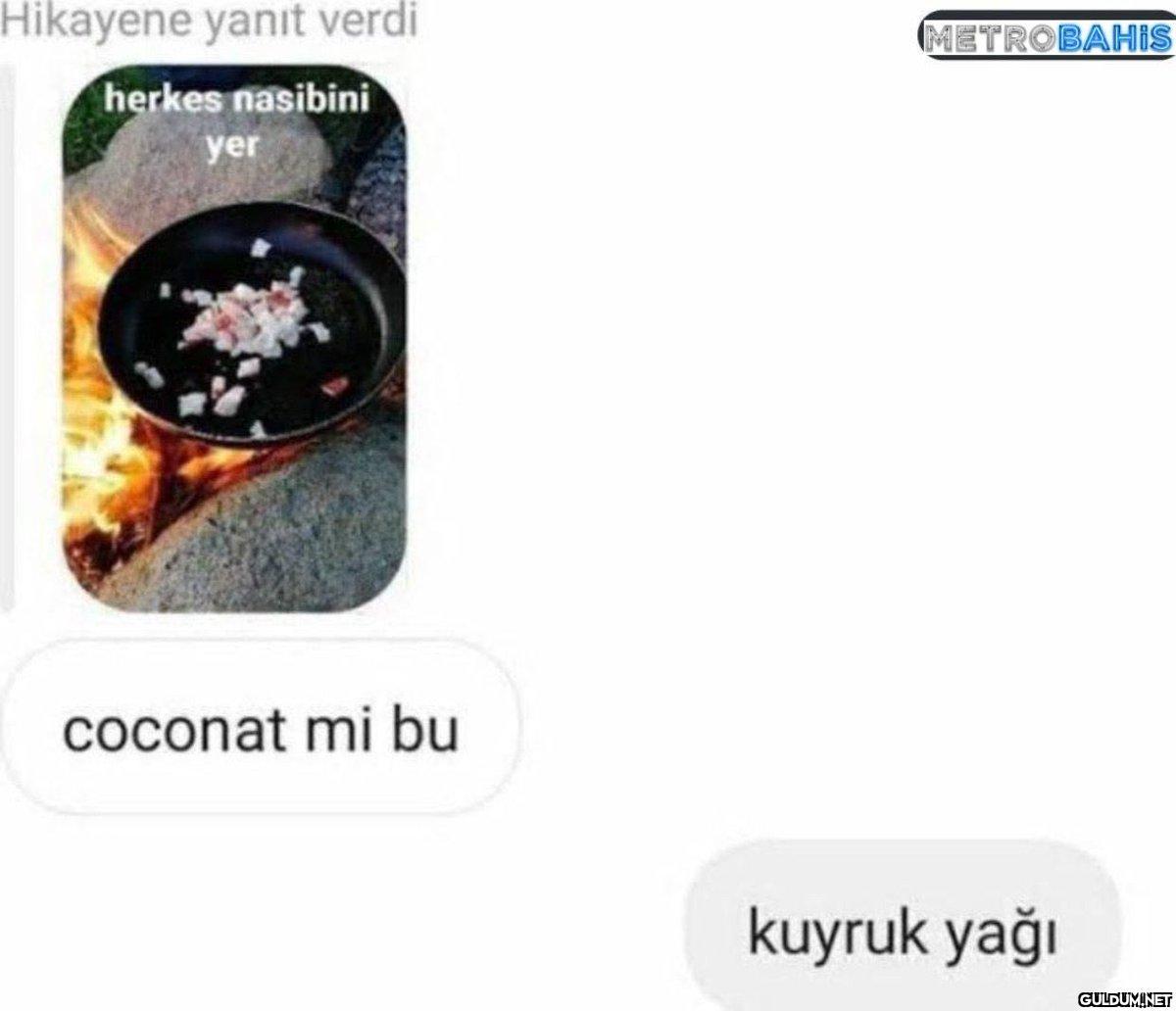Hikayene yanıt verdi herkes nasibini yer coconat mi bu METROBAHIS kuyruk yağı
Kaynak
The image shows a conversation snippet, likely from a messaging app. **Visual:** A picture of food in a pan over a campfire is shown. The food looks like small pieces of meat or perhaps onions, being cooked. **Text:** * **"Hikayene yanıt verdi"**: This translates to "The story replied." It's a common phrase used in messaging, indicating a response. * **"herkes nasibini yer"**: This means "Everyone gets their share/portion." This is a common proverb/saying. * **"coconut mi bu"**: This is a question in Turkish, meaning "Is this coconut?" * **"kuyruk yağı"**: This translates to "tail fat." It refers to a type of rendered animal fat, which may be used in cooking, but is not coconut-based. **Joke Explanation:** The joke plays on the visual of the cooked food in the pan. The question "coconut mi bu" (is this coconut?) is a humorous query about the food. The answer, "kuyruk yağı," (tail fat) implies that the food in the pan is not coconut, but rather a type of fat, which is likely less desirable than coconut. The underlying humor comes from the unexpected contrast between the expectation (coconut) and the reality (tail fat). It's a simple pun on the unrelated concepts of coconut and animal fat. The proverb "herkes nasibini yer" (everyone gets their share) also adds a layer of context, suggesting that the person being replied to is getting their share of...possibly not-so-desirable food.

Henüz bişi yazılmamış